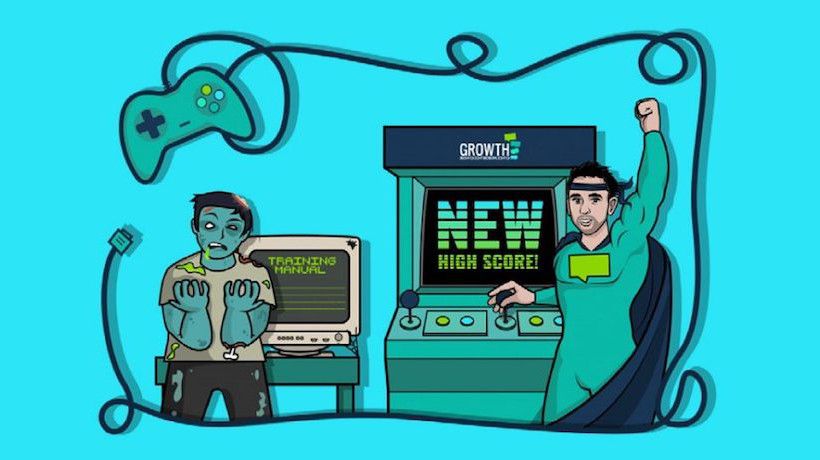How Every Trainee Does Things Differently And Why It Doesn't Really Matter
I could smell the salt air and feel the balmy ocean breezes on my face, and yet there I sat thinking about work. I wondered, “Does a trainer’s mind ever stop thinking about training and design?” This was a question I asked myself while on vacation recently. As I sat on my balcony watching the waves roll into the shore and people walking on the beach, I also noticed two lifeguards setting up for the day using very different styles. Watching them made me think about how we can train two new hires the exact same way and yet they may still come out of training with their own way of doing things.
Lifeguard #1 was hustling and literally running back and forth from where he was setting up his umbrellas and chairs to the hutch where they store them overnight. He was working hard to get things done fast and move on to something else. Lifeguard #2 was very methodically measuring out the distance between his umbrellas, carrying a few out at a time, putting them up and then calmly walking back to the storage hutch for more to add to his line of umbrellas and chairs. Lifeguard #1 got done faster and moved on up the beach to help someone else, while lifeguard #2 finished up his work. Both lifeguards had the exact same number of umbrellas and chairs set up and they were both in nice, neat, straight lines forming wings on either side of their lifeguard chairs.
I can’t say who made more money on umbrella rentals that day or if their different work styles made one bit of difference in that outcome, but it made me wonder about what happens when trainees leave us and go out to work on their own. Do they stick to the procedures we teach or do they do things their own way like lifeguard #1? And does it really matter, as long as the job gets done properly?
We may teach trainees to be methodical and take their time, but what happens if they get a line of customers, or more than one phone line rings and they need to move quicker than normal? Will they still be methodical and pay attention to the details or will they just rush to get through one task and move on to the next because they are flustered? What happens if a machine breaks down? Will they panic? Will quality, customer service, safety or compliance suffer?
Is it okay for trainees to put their own spin on things once they leave training? In the case of the lifeguards, it was probably okay because they both appeared to get the same end result, but what if it was in a bank or highly regulated industry, where mistakes could equal fines? What if it could mean life or death if they didn’t perform a certain way? How do we, as trainers, ensure that our trainees perform to the expected results once they leave the classroom or finish the online module, and return to the workplace?

The answer is that we can’t, but we can make sure that we teach them what to do if life throws curveballs and how they should handle them. We can teach them possible ramifications if they don’t do things the right way and what can happen if they decide on taking shortcuts. We can schedule follow-ups with them and ask supervisors to review their work on a regular basis to make sure they are doing things correctly. We can provide them with cheat sheets, job aids and just-in-time training if they get stuck and need assistance. We can do everything in our power to prepare them for life on the job and then it is up to them to perform up to the standards and get the job done.
Like the two lifeguards who had different styles; maybe the trainee tweaks the wording of his sales pitch to make it his own and outsells everyone else. As long as it is legal, there is nothing wrong with that. Maybe the frustrated new cook tries to appease an angry customer by slicing potatoes razor thin, frying them and creating fancy potato chips all because he decides to change the process he was originally taught in the heat of the moment. As long as trainees respect and stay within any legal boundaries that are pertinent and don’t violate company policies, maybe it isn’t so bad if they don’t do exactly what we teach them. We know we trained them correctly and did everything we could do to keep them compliant, change their behavior and help them grow, and in the end that is what training is all about.
Maybe next time when I go to the beach I will be able to take my training hat off for a while and just enjoy the view, but until then I’ll keep on contemplating how to assist my learners succeed. At the end of the day, that is the goal after all.









